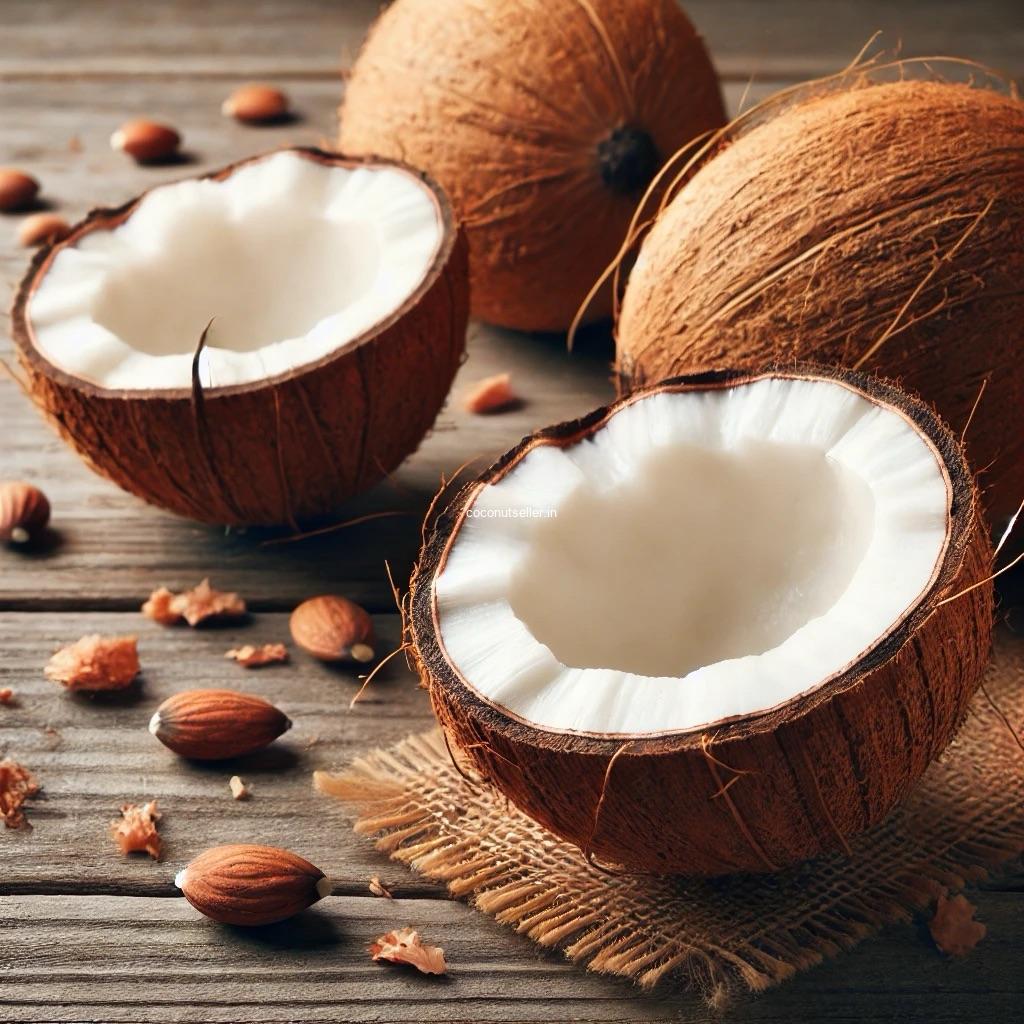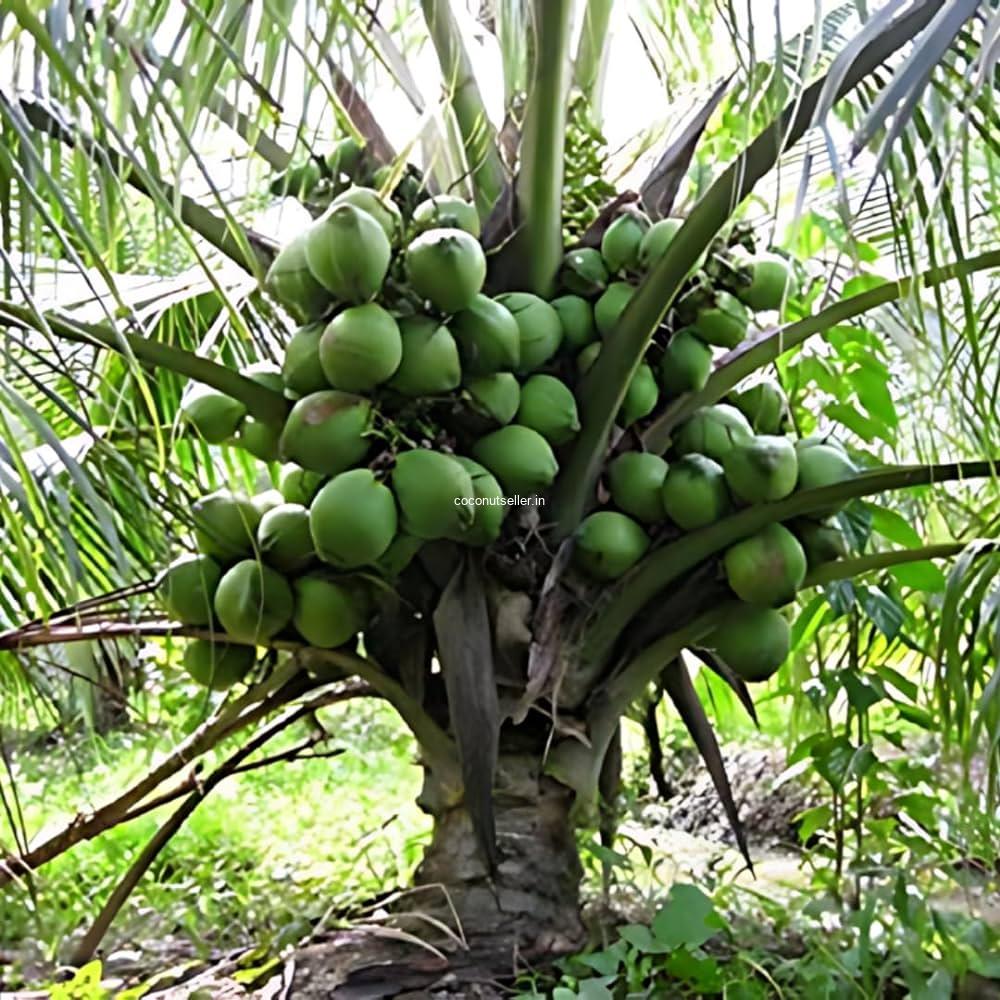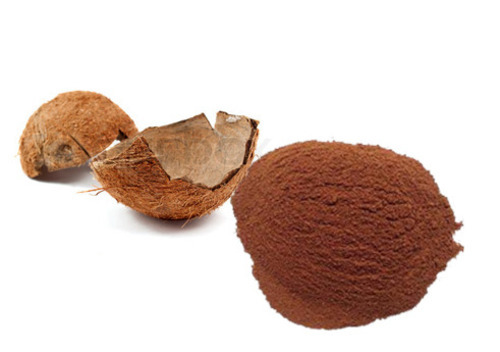
Coconuts can play a significant role in weight management due to their unique nutritional profile. Here are some ways coconuts contribute to weight management and tips on how to incorporate them into a diet:
Nutritional Benefits for Weight Management
- Medium-Chain Triglycerides (MCTs):
- Faster Metabolism: Coconuts, particularly coconut oil, contain MCTs which are metabolized more quickly than long-chain triglycerides, providing an immediate source of energy and increasing metabolism.
- Appetite Control: MCTs can help reduce appetite and calorie intake by promoting satiety and fullness.
- Healthy Fats:
- Satiety: The healthy fats in coconut products help you feel full and satisfied, which can reduce overall calorie intake and prevent overeating.
- Stable Blood Sugar: Including healthy fats in your diet can help stabilize blood sugar levels, reducing cravings for sugary and high-carb foods.
- Low Carbohydrate Content:
- Keto and Low-Carb Diets: Coconut products, such as coconut flour and unsweetened coconut flakes, are low in carbohydrates, making them ideal for ketogenic and low-carb diets that are effective for weight loss.
- High Fiber Content:
- Digestive Health: Coconut meat and coconut flour are rich in dietary fiber, which aids in digestion and helps maintain a healthy digestive system.
- Fullness: Fiber adds bulk to the diet, promoting a feeling of fullness and reducing overall calorie intake.
Ways to Incorporate Coconut into a Weight Management Diet
- Coconut Oil:
- Cooking and Baking: Use coconut oil as a cooking fat for frying, sautéing, and baking. It can replace other oils and butter in recipes.
- Coffee and Smoothies: Add a tablespoon of coconut oil to your morning coffee or smoothies for an energy boost and to promote satiety.
- Hydration: Drink coconut water as a low-calorie, hydrating beverage that provides electrolytes without added sugars.
- Post-Workout: Use coconut water as a natural post-workout drink to replenish lost electrolytes and support recovery.
- Coconut Milk and Cream:
- Dairy Substitute: Use coconut milk or cream in place of dairy in recipes, such as curries, soups, smoothies, and desserts, to reduce overall calorie intake while adding rich flavor.
- Smoothies and Protein Shakes: Blend coconut milk or cream with fruits and protein powder for a filling and nutritious meal replacement.
- Coconut Meat:
- Snacks: Enjoy fresh or dried coconut meat as a healthy snack. Look for unsweetened varieties to avoid added sugars.
- Baking and Cooking: Add shredded or grated coconut meat to baked goods, salads, and dishes for added texture and flavor.
- Coconut Flour:
- Baking: Use coconut flour as a gluten-free alternative in baking. It is high in fiber and low in carbohydrates, making it ideal for weight management.
- Thickening Agent: Use coconut flour as a thickener for soups, stews, and sauces.
Tips for Effective Use
- Moderation: While coconut products are beneficial for weight management, they should be consumed in moderation due to their calorie content.
- Balanced Diet: Incorporate coconut products as part of a balanced diet that includes a variety of other nutrient-dense foods like vegetables, lean proteins, and whole grains.
- Avoid Added Sugars: Choose unsweetened coconut products to avoid added sugars that can hinder weight management efforts.
- Hydration: Stay hydrated with coconut water and other low-calorie fluids to support overall health and metabolism.
By understanding the nutritional benefits and finding creative ways to incorporate coconut products into your diet, you can effectively use them to support weight management goals.



